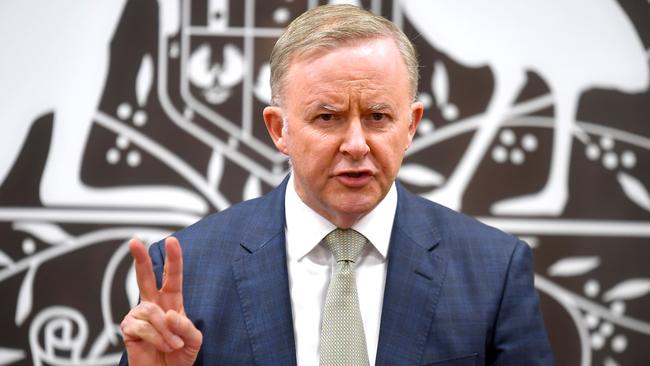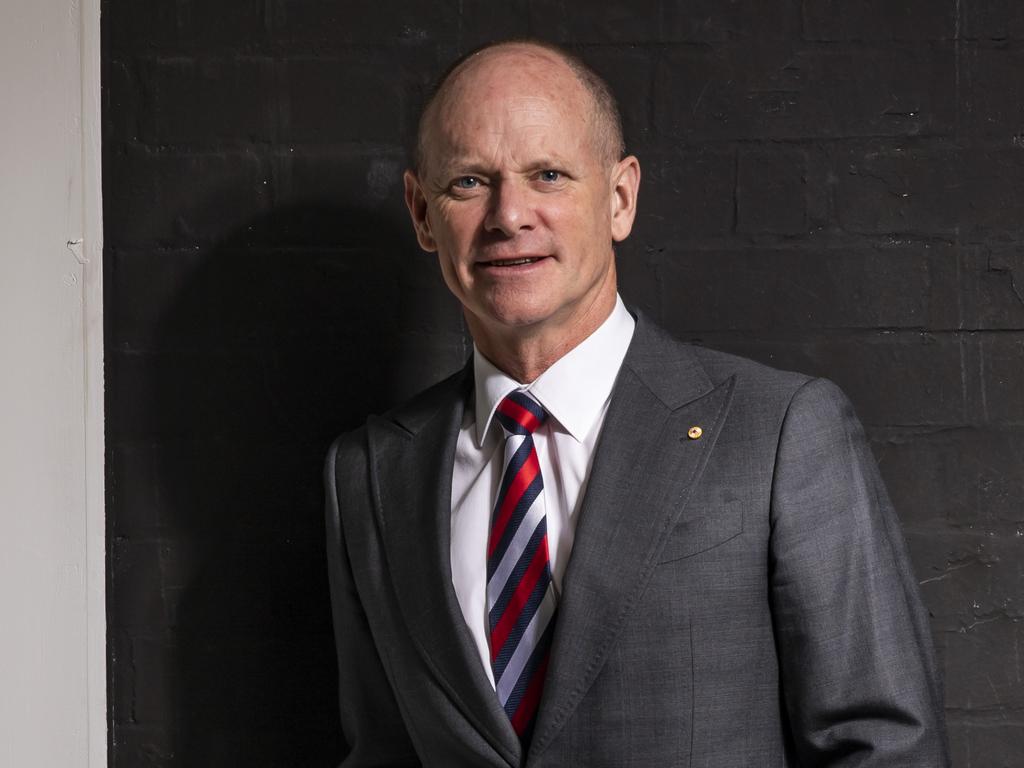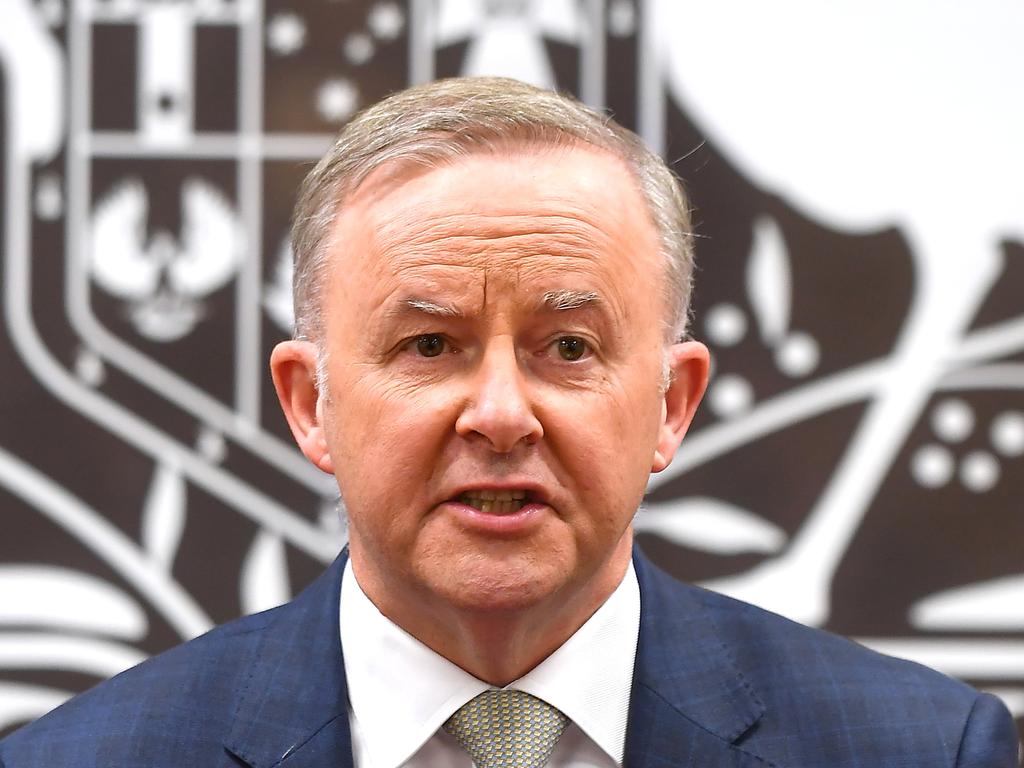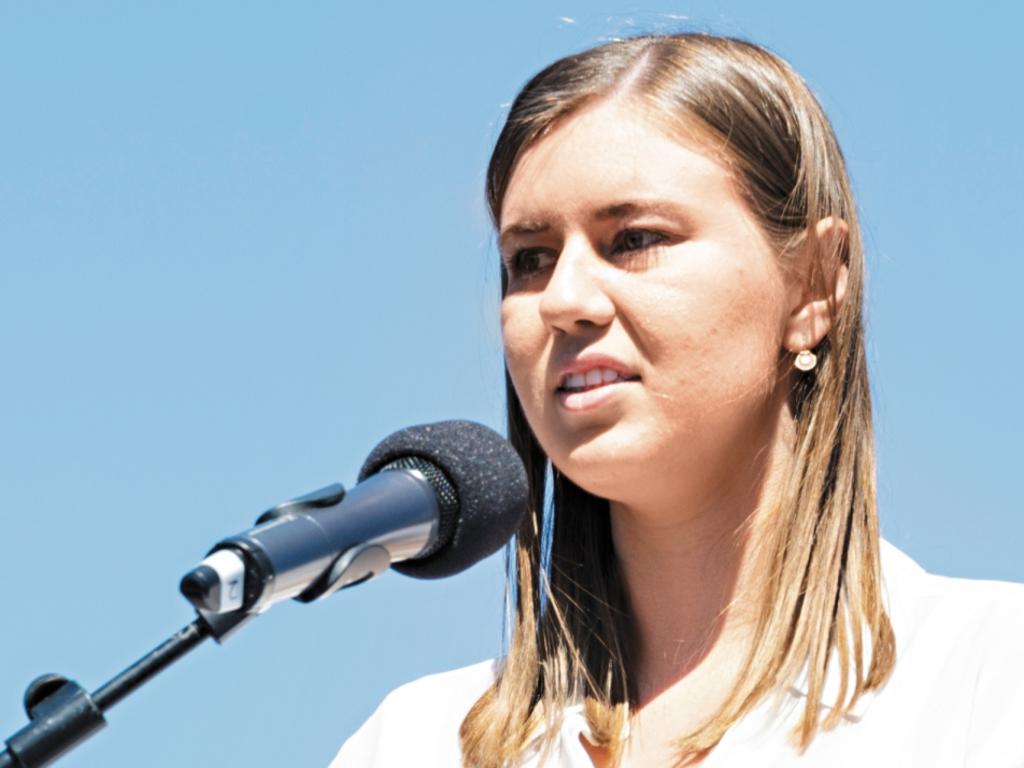Labor drops negative gearing and tax cut repeal policies
Anthony Albanese pledges to maintain tax cuts for higher income earners and dump plans to cut negative gearing in a pitch to aspirational voters.

Anthony Albanese has promised to maintain tax cuts for higher income earners and dump plans to cut negative gearing in a pitch to aspirational voters who deserted Labor at the 2019 federal election.
The federal Opposition Leader promised that if Labor won the next election he would not repeal or modify the third tranche of legislated tax cuts that are due to begin in 2024, benefiting workers earning more than $120,000.
Mr Albanese also dumped a Bill Shorten-era policy to crack down on negative gearing and capital gains tax concessions.
He signalled Labor’s health and education policies would now be paid for by further crackdowns on multinational companies.
“We, of course, down the track will have more to say about cracking down on multinational tax avoidance before the election,” Mr Albanese said.
The policy changes, which were highly contentious within Labor given their cost to the budget of more than $160bn over a decade, were endorsed in a caucus meeting on Monday on the recommendation of Treasury spokesman Jim Chalmers. The legislated third stage of the government’s personal income tax plan, due to start in July 2024, would create a flat 30c-in-the-dollar tax rate on earnings between $45,000 and $200,000.
It would do this by abolishing two tax brackets – the 32.5 per cent rate on income between $45,000 and $120,000, as well as the 37 per cent rate for earnings between $120,000 and $180,000, and applying a 30 cent marginal rate in their place.
The 45 per cent top marginal tax rate would kick in at $200,000, rather than $180,000.
“Labor wants to deliver for working families,” Mr Albanese said. “And what that means is providing them with stability and certainty. Families and businesses want to be able to plan. They want the ability to once again start looking forward to imagine a better, more prosperous life.”
Dr Chalmers, who has criticised the stage three tax cuts, said the next election should be about “what Australia looks like in the future”.
Labor MPs were highly critical of stage three of the tax plan when it was introduced into parliament after the 2019 election, with Mr Albanese and Dr Chalmers attempting to carve out the relief for high-income earners from the rest of the government’s package.
By neutralising the political debate over tax, Labor is aiming to make the next election about the government’s management of the pandemic, with Mr Albanese’s team set to blame Prime Minister Scott Morrison’s hotel quarantine program and delayed vaccine rollout for the lockdowns caused by the Delta variant.
The decision to maintain the third tranche of tax cuts and keep negative gearing is the latest contentious Shorten-era policy to be jettisoned.
In January, Mr Albanese dumped Labor’s pre-election policy to axe cash refunds for franking credits, which would have raised $55bn over a decade.
Mr Shorten’s negative gearing, franking credits and income tax policies at the last election gave Labor the firepower to spend an extra $14bn on schools over a decade as well as big-ticket health items including its $2.3bn cancer package and its $2.4bn dental care package.
Some Labor MPs are concerned the decision will limit Mr Albanese’s ability to outgun the government on health and education spending, while others argue the “pragmatic” policy shift was necessary to ensure the next election does not become a “scare campaign” over opposition tax policies.
“What would Morrison want us to do? For him to be able to fight an election on tax would be his dream,” one Labor MP said.
Health Workers Union secretary Diana Asmar said an Albanese government would “no doubt have to consider other forms of revenue raising to ensure our health system is sufficiently funded”.
The ACTU declined to comment on Monday as Mr Albanese vowed that a Labor government would “deliver the same legislated tax relief to more than nine million Australians”.
Finance Minister Simon Birmingham said Labor’s decision was “perhaps the most agonising” and “half-hearted concession in Australian politics”.
“And one that can’t really be believed,” Senator Birmingham said. “They’ve done it after months, years of bickering and arguing inside Labor.
“We know they’re divided. We know that don’t believe in it. And they can’t be trusted with it.”
In October last year, Mr Albanese said the plan would result in $80bn of tax cuts going to the “really high end”.
A month later, Joel Fitzgibbon was the first Labor MP to publicly warn against going to the election vowing to change the package when he quit the shadow cabinet.
At that time, repealing or modifying stage three was the majority view in the caucus, despite a concerted push after the election from Right faction MPs, including deputy leader Richard Marles, to neutralise the issue.
A key to changing caucus sentiment was Treasurer Josh Frydenberg using his post-budget address to attack Labor for not committing to keeping stage three if it won the election.
“If they were to abandon stage three or propose to abandon stage three, it would mean that somebody on $80,000 a year – a middle-income earner – would be $900 a year worse off,” he said in May.
In Monday’s caucus meeting, no one opposed the decision, although there were questions about how to sell the positions from West Australian Left MP Pat Gorman and NSW Right MP Susan Templeman.
The Australian revealed a fortnight after the budget that Labor was moving to back the stage three tax cuts ahead of the next election.
Australian Chamber of Commerce and Industry acting chief executive Jenny Lambert said Mr Albanese’s vow not to repeal or change the legislated $130bn tax cuts for middle and high-income earners would provide certainty.
“Labor’s decision means there is certainty that (it) stays. It is never a good thing to have such a substantial thing held up into the uncertainty of what is going to happen after an election,” she said.
Property Council of Australia chief executive Ken Morrison said Labor’s previous pledge to clamp down on negative gearing and capital gains tax concessions was the “wrong policy”.
“The vast majority of property investors are not rich property barons – they are everyday Australians looking to get ahead and providing the rental accommodation that is needed by the one-third of households who rent,” he said.
“Australian Taxation Office data shows that 71 per cent of investors own just one investment property and 19 per cent own just two, while 47 per cent of investors are women.”
Housing Industry Association managing director Graham Wolfe said the announcement would “provide certainty for the housing industry and for Australians that are looking to invest or rent”.
“Private rental housing plays a critical role in Australia’s housing supply continuum,” he said.
“Without a reliable pool of residential investors across Australia, hundreds and thousands of households would find it harder to put a roof over their heads.
“Australians need to have the ability to access affordable housing, whether as a renter or as an owner occupier.”








To join the conversation, please log in. Don't have an account? Register
Join the conversation, you are commenting as Logout